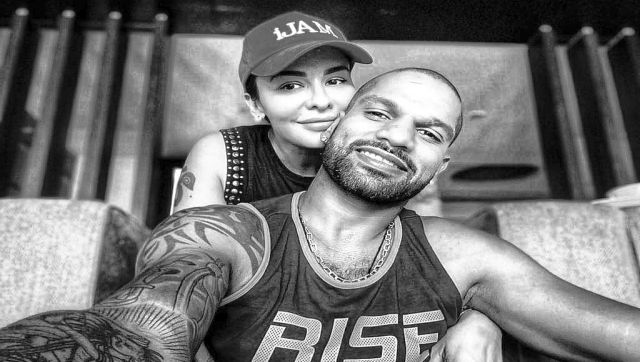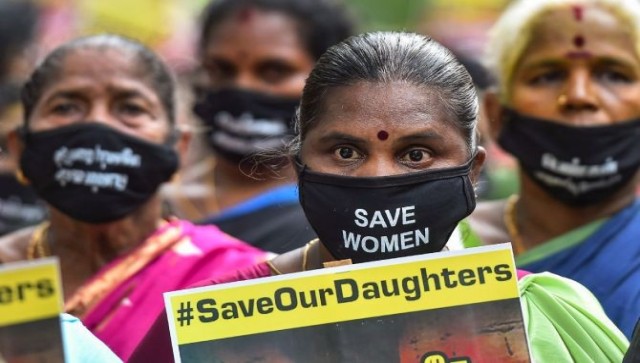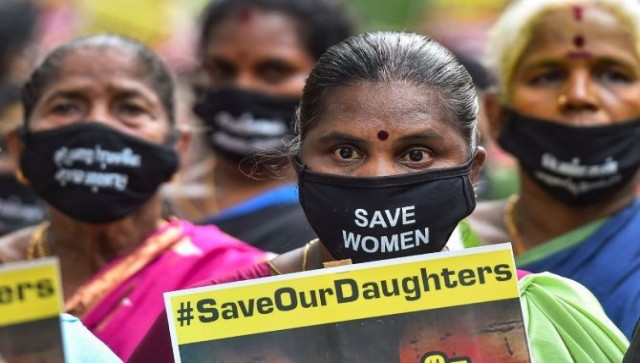Cricketer Shikhar Dhawan hasn’t made the Indian squad for the World Cup 2023, but made news after a Delhi court granted him a divorce from his wife, Aesha Mukherji, on the grounds of mental cruelty.
The couple who had tied the knot in 2012 also have a 10-year-old son, Zoraver Dhawan. Both Aesha and Zoraver are Australian citizens and reside there.
In its judgment, the Delhi court said that Aesha had subjected Dhawan to mental agony by compelling him to live separately from his only son for years. “He (Dhawan) for no fault of his own had been through immense agony and anguish of living separately from his own son for years. Even though the wife denied the allegation, submitting that though she genuinely wanted to live in India with him, however due to her commitment towards her daughters from her previous marriage requiring her to stay in Australia, she could not come to live in India and that he was well aware of her commitment, yet she did not choose to contest the claim,” judge Harish Kumar said in the order.
“Hence, it stands proved that the wife backtracked from her assurance of setting up matrimonial home in India after marriage and thus made him suffer a long distance marriage and suffer immense agony and anguish of living separately from his own son for years,” the judge further said.
While the court hasn’t passed an order on permanent custody of the child, it has granted mandatory visitation rights to Dhawan to meet his son in India and Australia. It also ordered Aesha to bring their son to India for visitation purposes including overnight stay with Dhawan and his family and during the school holidays.
This case throws light on the matter of cruelty in a marriage. What does cruelty entail? What does the law have to say?
We answer all this and more.
Cruelty in a marriage
The Hindu Marriage Act of 1955, which governs marriages between Hindus, and the Special Marriage Act of 1954, the law pertaining to marriages regardless of religion, both have a cruelty clause.
Both state that cruelty in a marriage is a valid ground for divorce.
Notably, both laws don’t specify what cruelty entails. However, the court has said that cruelty is “the sum total of reprehensible conduct or departure from normal standards of conjugal kindness that causes injury to health, or an apprehension of it”.
Different types of cruelty
According to the law, there are two types of cruelty in a marriage. One is physical – violent conduct causing pain to the spouse; the other is mental cruelty, which makes it impossible to reasonably expect one’s spouse to put up with the conduct complained of and live with the other.
Physical cruelty is definite and has no ambiguity. As the courts have mentioned, it is more “a question of fact and degree.” For instance, a man beating his wife constitutes physical cruelty and on this basis she could ask for a divorce.
The court has stated that any physical violence, bodily injuries, threat to life, limb and health apparently causing apprehension in the mind of a spouse would constitute physical cruelty and is a valid ground for divorce.
Mental cruelty is where things become tricky. The courts in India haven’t been able to put down exactly what entails mental cruelty but has broadly based it as severe disappointment or frustration making it impossible for the other party to further continue matrimonial relationship.
In fact, the Supreme Court recently in an order said that rapid changes in modern life have made what constitutes ‘cruelty’ in marriage fluid. Justice MM Sundresh noted that the boundaries of what constitutes cruel conduct in marriages shifts depending on human behaviour, capacity or incapability to tolerate the conduct complained of, etc.
“Each case may be different… A new type of cruelty may crop up in any case,” the 6 September judgment said, adding, “The human mind is extremely complex and human behaviour is equally complicated. Similarly human ingenuity has no bounds… What is cruelty in one case may not amount to cruelty in the other case. The concept of cruelty differs from person to person depending upon his upbringing, level of sensitivity, educational, family and cultural background, financial position, social status, customs, traditions, religious beliefs, human values and their value system.”
Justice Sundresh further added that mental cruelty changes with the passage of time, impact of modern culture through print and electronic media and value system, etc… “What may be mental cruelty now may not remain a mental cruelty after a passage of time.”
Instances of mental cruelty in a marriage
In past divorce cases, the court have established that some forms of behaviour by either spouse does entail mental cruelty.
The Supreme Court in a 2014 divorce case ruled that if a spouse does not allow the partner to have sex for a long time, without sufficient reason, it amounts to mental cruelty. In its judgment, the apex court also stated that there were similar cases in the past that established wilfully refusing intercourse with one’s partner did entail mental cruelty.
In September, the Delhi court hearing a divorce case said that making false allegations against the “chastity” of a woman constituted mental cruelty and was grounds for a separation. “There can be no greater cruelty than making false allegations against the chastity of a woman,” it said in its ruling.
Forcing a husband to separate from his dependant parents has also been considered mental cruelty by the Calcutta High Court.
In July, the Chhattisgarh High Court held that a man’s excessive drinking amounted to cruelty and was a valid ground for divorce under the Hindu Marriage Act.
In the (in)famous case of Mayadevi v Jagdish Prasad, 2017, the Supreme Court had ruled that the wife’s decision to not feed him and the children in the marriage was mental cruelty and grounds for a divorce.
In the Naveen Kohli v Neelu Kohli matter of 2006, the apex court had held that Neelu’s behaviour – quarrelling and even registering a fake FIR against him – amounted to mental cruelty and granted Naveen the divorce.
While the definition of mental cruelty is yet to be ascertained, one thing is certain: cruelty is non-gender specific. Either spouse can display cruelty in a marriage, leading to the crumbling of the relationship.
With inputs from agencies


)




)
)
)
)
)
)
)
)